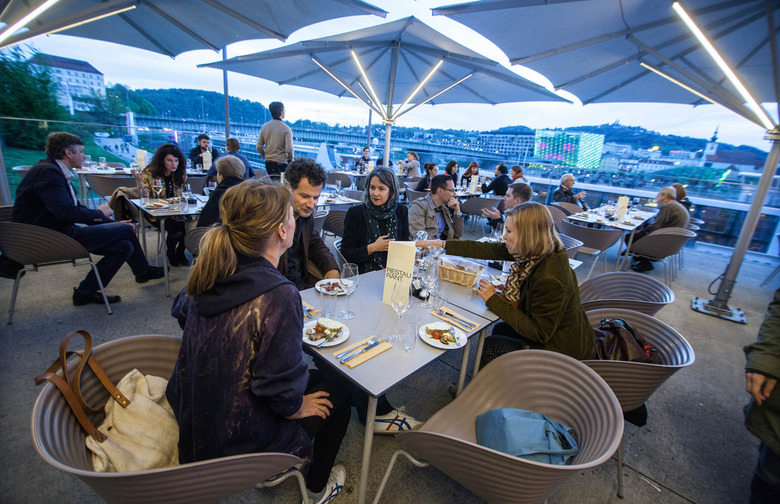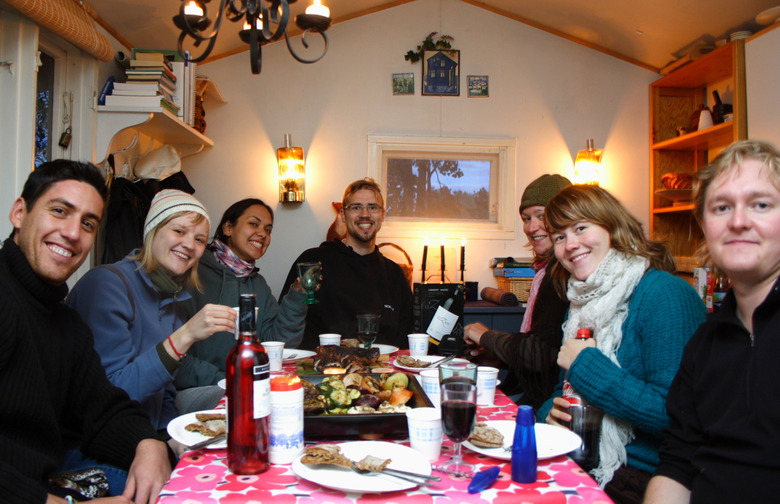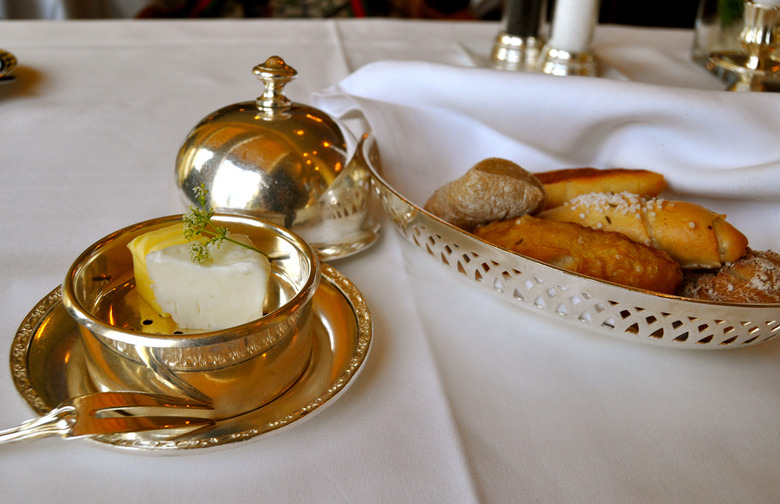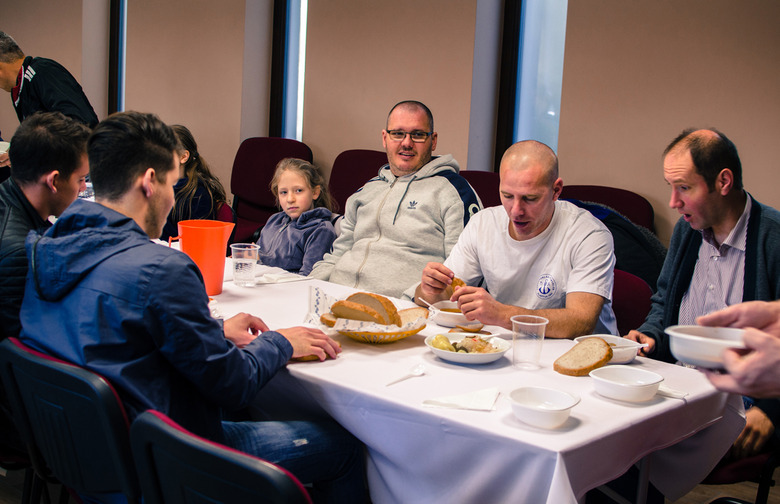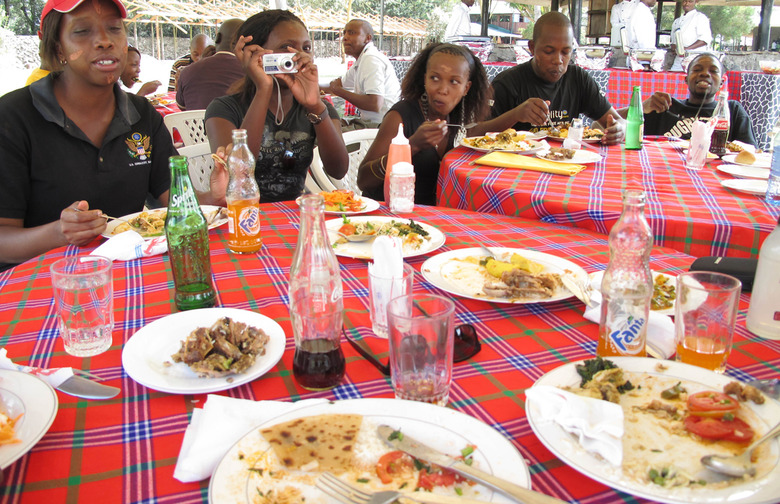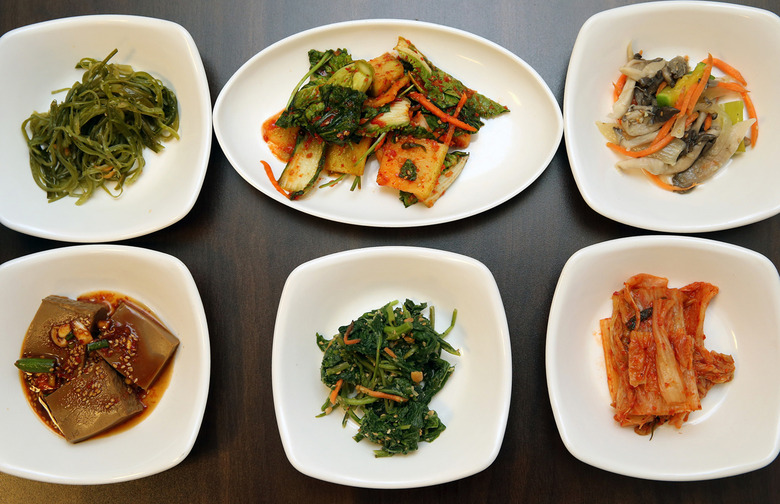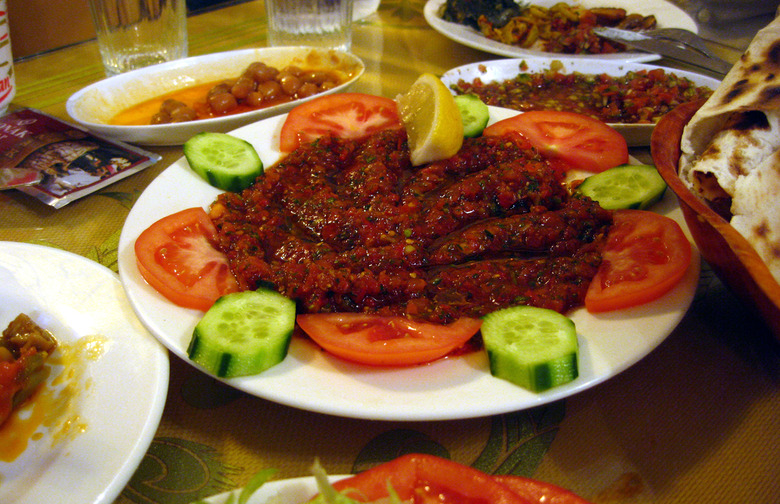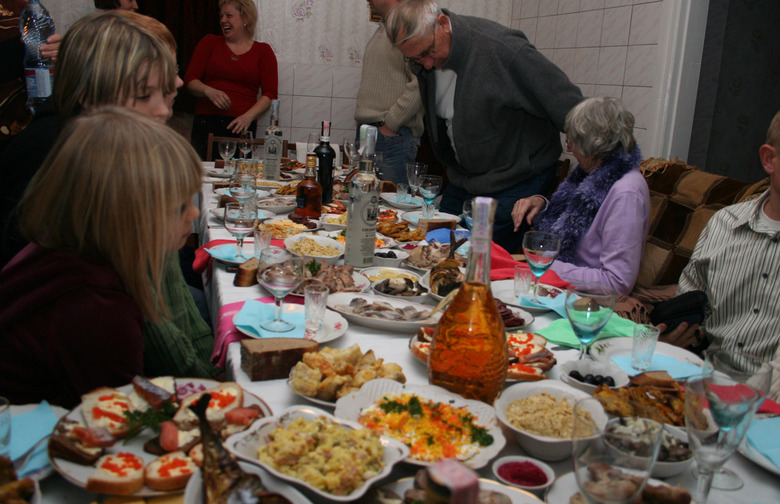Global Etiquette: Manners In 10 Countries (Slideshow)
Afghans are gracious hosts, and when invited to visit, you will be greeted warmly, seated comfortably, and offered a chai, which is the ancient word for tea. Traditionally made with either green or black tea leaves and served very sweet, the amount of sugar in your glass corresponds to the honor they are bestowing on you as their guest, so you should be properly thankful. Depending on your host, you may be served your chai in a typical mug or tea cup, or in an istakhan, a traditional small narrow glass set on a saucer that will be filled repeatedly as you visit or dine. The proper way to politely decline another glass of chai is to simply turn your glass over.
Austria
Austrians tend to be reserved until you get to know them. In their homes, table manners reflect hundreds of years of formal dining traditions that originated with the rule of the Habsburgs. You will make a wonderful impression if you remember table manners are continental, you wait to sit until your host or hostess invites everyone to the table, and you wish the other guests, "Guten Appetit" or "Mahlzeit," which literally means mealtime.
Chile
Chileans, like other South Americans, have Continental table manners, and some Old World customs are still observed, such as the seating arrangements. When you are invited to sit, women go first, and if there is a guest of honor, he or she will be seated next to the host or hostess depending on his or her gender; women will be seated to the right of the host and men to the left. No matter what your gender, never pour wine with your left hand, and when you are finished with your meal, it's proper to indicate this by placing your knife and fork parallel to each other with the tines of the fork pointing north.
Finland
The Finns are warm, but reserved people and are rightly proud of their egalitarian society, which is reflected in their frequent use of gender-neutral words and willingness to share work and entertaining duties. If you are invited to a Finnish family's home, contact your host or hostess in advance to see if he or she would like you to bring a dish; your offer will be appreciated and show your host you took the time to understand Finnish table manners. It's also customary to offer to help your host with preparations when you arrive, or help with cleaning up afterwards.
France
For mealtime pomp and circumstance, certain cultures get high marks for their elaborate or confounding table manners, and the French have their fair share. They of course use the fork and knife in the continental fashion, but have a host of other traditions — many just related to bread because they cannot live without their beloved baguette. Never cut your bread with a knife; it is proper to pull off a morceau, or morsel, and then place it directly on the table, unless the table setting is formal and bread plate has been provided. If you are at a close friend's home, or a casual bistro, it is acceptable to use small pieces of your bread to sop up sauces, or essuyer son assiette, to enjoy every last drop, which also helps you comply with another rule about finishing everything on your plate to let your host or hostess know you enjoyed the meal.
Hungary
Hungary is a country with a history of hundreds of years of invasion and rule by foreign kingdoms. Culturally speaking, it has one foot in the east and the other firmly planted in the west. Influenced by the cuisine and dining traditions of the Ottoman and Habsburg empires, Hungarians are fabulous hosts with a sense of fun, but a healthy respect for the more formal traditions that are holdovers from the past. Like other countries, the host will indicate when it's time to sit down for dinner, will wish the guests, "Jó étvágyat kívánunkbon," or bon appétit, at the start of each course, and will encourage you to try a little bit of everything that is served. If you are a guest of honor, you will be expected to make the first toast and wish everyone good health, and you will be expected to concur when another guest makes the same toast at the end of the meal. Wine is an important component of the meal and Hungarians make lovely wine that will be poured liberally throughout the meal. If you reach your limit, you may discreetly leave your glass half full and your host will refrain from asking if you would like more.
Kenya
"Chakula tayari," or "Come to the table" in Swahili, is the warm and welcoming way gracious Kenyans offer their hospitality. The image of a hostess gently greeting her guests — arms outstretched in an embracing hello, dressed in a colorful kitenge with a kanga headdress wrapped attractively around her head — is a familiar and heartwarming scene. Should you be lucky enough to get invited to someone's home, remember that in Swahili the word for right is kulia, which means "to eat with," and this custom of using only the right hand to shake hands or pass food is an ancient taboo. Having clean hands is essential because eating with utensils (many Kenyans follow continental rules for forks, knives, etc.), especially in rural areas, may not be possible. To ensure every guest's comfort, dinner guests wash hands before and after dinner, sometimes in a basin brought to the table.
Korea
In Korea, ancestors, the elderly, and the head of the household are given respect and held in high regard, and this is just as true at the table. Children, adult family members, and other guests show elders respect by bowing and not giving eye contact when they arrive, and if there is an honored guest or elderly person at the meal, they will be deferred to by reserving the best seat far away from the door. Elders are also the first to begin eating and let the other diners know to start by raising their spoon to eat (soup is frequently the first course). They also set the pace of the meal and give the cue to the meal's end by placing their spoon in the rice bowl and exiting the table first.
Turkey
Turkey is an ancient country with a rich, sophisticated social history that holds entertaining and hospitality in high regard. However, the dining and entertaining customs have highly stratified rules about the titles, food and drink taboos, and gender roles. Religious and ethnic cultural traditions can often clash with more casual westernized attitudes toward status, honor, respect, women, and religious practices, so you have to be on your toes. When dining in someone's home or at a more formal restaurant, honored guests sit at the head of the table in the seat furthest from door, next to the male host. Often in more traditional homes men and women eat separately and it's common for the guest of honor to eat first, followed by the oldest man, then the host, the children, and finally the women — which isn't surprising since the women do the cooking and serving.
Ukraine
The Ukrainians are easy-going and shy-but-friendly people who love getting together for hours over dinner, sharing stories, and offering many toasts to everyone's health and prosperity. It's in the privacy of their homes that they open up and give their guests an evening to remember. Unlike the other more reserved Eastern Europeans — who are reluctant to invite strangers to their home — Ukrainians do so easily. They will put out a huge spread of delicious homemade dishes and vodka for you, their honored guest, to enjoy, so plan to eat, make toasts, and drink for hours.

